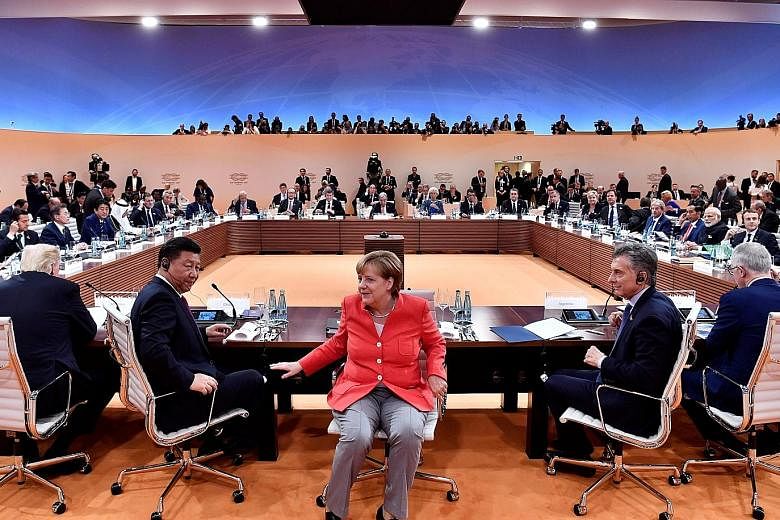Prime Minister Lee Hsien Loong yesterday called on leaders of the world's 20 biggest economies not to abandon multilateral trade.
He also urged small countries to band together to make their collective voices heard and achieve shared interests, in the face of anti-trade and protectionist sentiments sweeping the globe.
Speaking at the Group of 20 (G-20) Leaders' Summit, he argued that multilateral arrangements give countries greater scope to make trade-offs between different sectors, and reach "win-win deals".
Some countries deal with the anti-trade forces by adopting a bilateral approach to trade matters, he noted.
But many others, especially small countries such as Singapore and members of the Global Governance Group (3G), "strongly prefer the established multilateral route".
Singapore was invited to attend the G-20 summit as convener of the 3G, an informal group of 30 small and medium-sized countries. The G-20 is a group with 19 countries and the European Union.
PM Lee said many major trading countries have reaffirmed that they still support the multilateral model.
This, he added, is a politically courageous move that is crucial to prevent "tit-for-tat responses setting off a downward spiral".
He cited the EU as the best example of countries working multilaterally with one another and hoped the World Trade Organisation (WTO) would also unlock its potential.
WTO is the ideal platform for multilateral trade, but in practice, its 164 members find it difficult and time-consuming to reach deals, PM Lee said.
Still, the WTO does valuable work, he added, citing the Trade Facilitation Agreement that came into force in February this year.
The agreement is the first multilateral deal concluded in the WTO's 21-year history, and a 2015 study has projected that its full implementation will reduce members' trade costs by an average of 14.3 per cent, with developing countries standing to gain the most.
In December, trade ministers and senior officials from WTO member countries will attend the Ministerial Conference in Argentina.
PM Lee hoped the conference would focus on issues where members can find consensus, and take "meaningful steps forward supporting the multilateral trading system, and the WTO".
"For all its limitations, it is the ultimate forum for all trading nations to work together and build a global framework for trade," he said.

